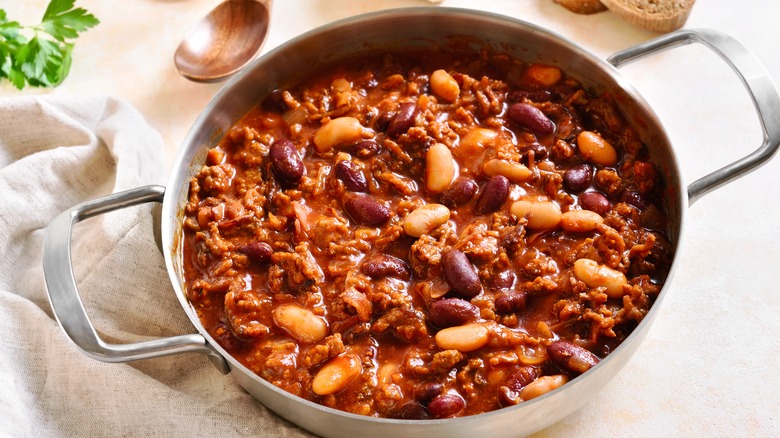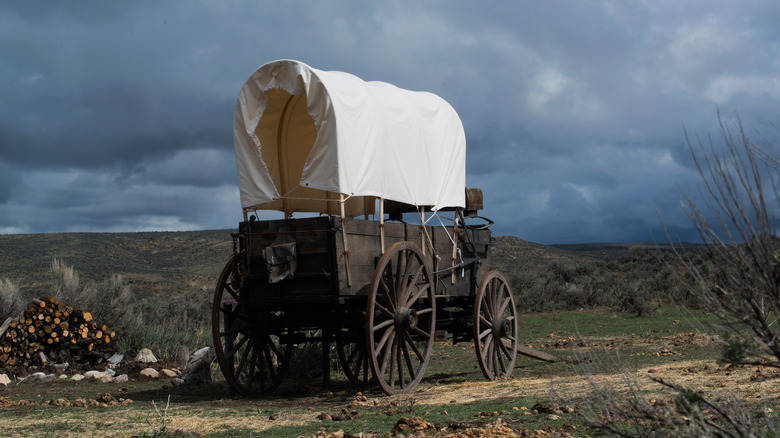We Have Cowboys To Thank For Chuckwagon Stew
Some have described the chuckwagon as a predecessor to the food truck, but it was actually more like a company cafeteria attached to a business that was itself a mobile one. The name of the game was cattle driving, and the chuck wagon was created by Charles Goodnight, one of the eponyms of the world's most poetically-named cowpath, the Goodnight-Loving Trail. Cuisine a la chuckwagon consisted of copious amounts of coffee, the occasional fruit dessert, endless loaves of sourdough bread, and whatever main dishes could be thrown together from wagon-stable goods like canned vegetables, potatoes, onions, and dried meat.
While there was no cowboy cookbook spelling out specific recipes — nor would anyone necessarily have read it at a time when illiteracy wasn't uncommon — chuckwagon stews tended to follow a basic pattern. For one thing, even though there was a lot of boeuf on the hoof, the cowboys were paid to deliver the cattle to market alive so they didn't tend to dip into their stock. Instead, chuckwagon stews might have been made from dried meat and perhaps a bit of bacon. They might have also contained onions and dried chiles for flavoring, along with beans for extra bulk as well as some, er, postprandial musical entertainment. Even though the movie "Blazin' Saddles" may not have been historically accurate, dried legumes were a staple in the cowboy diet and the gas-producing effect of beans is not only the butt of numerous jokes (so to squeak), but also an inescapable fact of life.
Modern chuckwagon stews aren't too similar to their 19th-century predecessors
Nowadays, nearly a century and a half after the Goodnight-Loving Trail went gentle into that good night, the internet is awash in "cowboy" and "chuckwagon" stews, some of which bear little resemblance to anything that might have been served up on a cattle drive. Some call for stew meat, some call for ground beef, and some call for kielbasa, a sausage that is typically smoked, but usually not to the point where it would stay fresh at room temperature for weeks or months on the trail. There are even recipes calling for now-popular ingredients such as fish sauce that probably wouldn't have been too familiar to cowboy cooks of yore.
While the original chuckwagon stews would have been cooked over an open flame, many contemporary ones call for making the stuff in a slow cooker. This appliance was first available for purchase in the 1950s, but even if a time-traveling chuckwagon cook somehow got hold of such a miracle of modern technology, they couldn't put it to use with nowhere to plug it in. There is one thing that chuckwagon stews both old and new have in common, however, and that's the fact that they all seem to call for beans of some sort or other. After all, nothing bridges the generations like a tasty, inexpensive source of fiber, protein, and unintentional hilarity.

